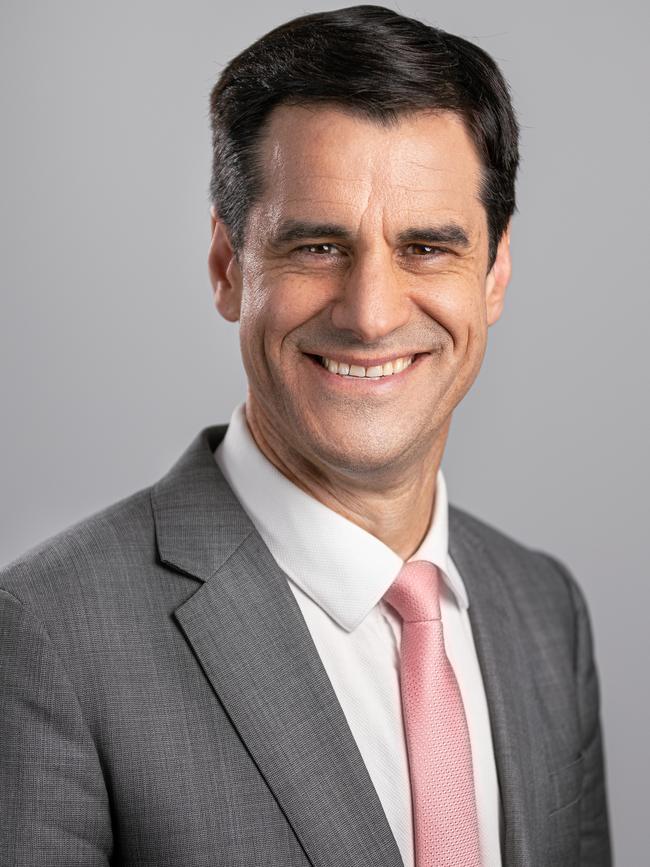Generation Alpha: How to parent kids born during the Great Screen Age
They’re the first generation to never know a life without iPads. Born from 2010, Generation Alpha are the youngsters growing up in a world that shows no signs of slowing down.
Lifestyle
Don't miss out on the headlines from Lifestyle. Followed categories will be added to My News.
From screen addiction to social media, mental health challenges and growing up COVID-normal, Generation Alpha sure has its challenges ahead. But, they also have the greatest opportunity for growth, change and impact, social researchers Mark McCrindle and Ashley Fell say.
This week, the pair released Generation Alpha, a book dissecting the life and times of children born from 2010 to 2024 – and like the issues it investigates, its findings are complex.
McCrindle actually coined the term Generation Alpha about 10 years ago.
“At the time, the focus was on Generation Z, those born between 1995 and 2009 – and yet a new generation was about to begin,” he said.
“With Z completing the Latin alphabet, there was no subsequent letter to assign to them. So, I conducted a survey on what the new label could be and many people suggested Generation A.
“But knowing this generation would be the first to be entirely born in the 21st century, I felt that they are not a return to the old, but the start of something new.
“Using this reasoning and drawing on the scientific nomenclature of turning to the Greek alphabet, I decided to name them Generation Alpha.”

Two years in the making, Fell said the book covers an area of research important not only for parents and teachers, but for leaders and educators to understand the pressures facing today’s youngsters, and how to best support them through it.
“The first thing people talk about when they think about Generation Alpha is technology and screens – that’s a key defining trait for this generation,” she told Saturday Extra.
“They’re called the digital integrators, they are living in the Great Screen Age and a lot of parents have said ‘all my kids want to be are YouTubers when they grow up’, and we even say for them, the number one search engine is no longer Google, it’s YouTube – because why would they read something when they can watch it.
“Parents are saying I want my kids to be tech savvy, and they need to be for this increasingly digital future that they’re going to have to work in and lead in and operate in, but they also know that there are some real challenges, and it exacerbates some issues that previous generations had to deal with – like bullying, mental health and wellbeing.
“That was quite profound, and the tension of wanting to give children independence but also keep them safe, exposing them to the real world but also wanting to shelter and protect them … the traditional education versus the school of life, and restricting screen time versus using it as a reward.
“We explore some of those tensions, and I found that really interesting.”

While Gen Z kids didn’t receive their first digital devices until their late primary school years, Generation Alpha children typically have had access to a device from their youngest years.
“From asking questions of the smart speaker like, ‘Hey Google, what time will the sun rise tomorrow?’ to watching YouTube videos of teens playing Fortnite, Generation Alpha are true digital integrators,” McCrindle and Fell write in the book.
“From our research we have observed a significant increase in app-based play and screen time among children, leading to shorter attention spans, greater digital literacy and less traditional social formation among the emerging generations.
“Unintentionally, Generation Alpha have been thrown into a global experiment where screens are placed in front of children as pacifiers from the youngest age. But these devices are more than pacifiers, they are tools for both entertainment and education.”
When this generation is complete in December 2024, Generation Alpha births will total almost two billion globally, and they will be the largest generation in the history of the world, with most of them to live to see the 22nd century.
“In their life so far, the biggest social and cultural marker has been the COVID-19 pandemic … and Australians believe it will transform how Generation Alpha approach technology, education, work, face-to-face interaction, mental health and resilience,” the book continues.
“These young people have access to more technology, information and external influences than any generation before them, and at a younger age than generations past … as brand influencers, tweens are a unique segment to engage with.”

Fell said while we were all living in the ‘Great Screen Age’, the defining factor for Generation Alpha was that it was the only age these children would ever know.
“2010 – that’s when they started being born, that’s when Instagram first launched, that’s when we first had iPads – so while other generations remember a time before these things, this is the only world Generation Alpha will ever know, and that’s a key difference with how embedded it becomes in their life, and the challenges that come with it,” she said.
“Up-ageing or becoming more mature at a younger age, was also prevalent, and not without its challenges.
“When you’re an adult and you look back and you think ‘Oh, I wish I’d made the most of those days when I had no concerns and no bills’ – and it’s important for adults to almost protect a child’s innocence, and also prepare them for the real world and build their resilience,” Fell said.
“But it’s going to be challenging, and that’s a sentiment we found when we interviewed parents and educators and ran surveys.
“It’s hard to be a kid and growing up in the future, and yes we don’t want to skate over that but for us, the reason we wrote the book is to help people and parents and leaders understand the context – the good and the bad – and also still believe it’s a really positive generation.
“They are going to be equipped with more information, they will be more formally educated, more globally connected than ever before – yes that has challenges, but there is also some great opportunity that exists for them.
“Even with COVID and changes to how we are working and trying to progress – like gender equality – they will see the benefits of the work generations are doing now in certain areas, so we take a positive look, but also look at the challenges they face.”

Castle Cove’s Sophie Bacic said it was interesting to learn about what the generation of her four young children would live through.
“I know technology is an issue, but COVID has really taught us a lot about how we manage that,” she said.
“It’s all about balance and we love spending time with the kids as much as we can.
“We don’t want them to feel the stress of what’s happening in the world — they have enough time for that.
“They need to learn about themselves, discover who they want to be and what they want to do with their lives — it’s such an exciting time for them.”




